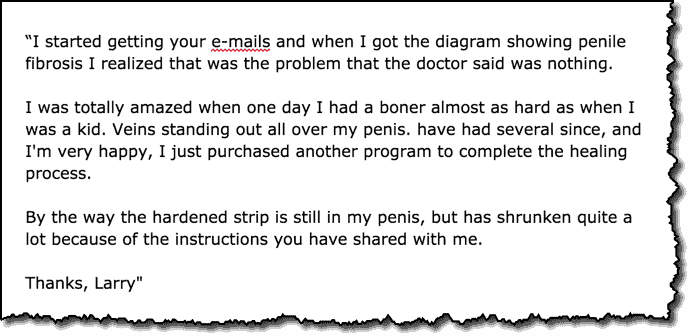
In animals, this super vitamin slows the growth of cancer cells and tumors!
—-Important Message—-
Men: here’s a brand new way to fix penile problems (forever)
If you haven’t had consistent morning wood, then you’ll want to try this brand new “fix” for penile problems…
…with THESE benefits:
- Opens up blood flow to the male member
- Makes the member look thicker and bigger
- Fully natural (no harmful Big Pharma chemicals to take)
- Also clears the heart, liver, and brain of harmful plaque — may add decades of healthy and sexy life

End penile problems and begin the sex life of your dreams
———-
Eat more of this Super Vitamin to prevent cancer, study says
Call it the Super Vitamin. But not the way most people use it.
I’m talking about a specific type of vitamin D – and as you may not realize, Vitamin D is protective against many chronic illnesses.
It may even help protect against viruses, flu and bronchial infections.
But today I want to talk about cancer.
There are many reasons to believe that vitamin D is protective against cancer…
…but until now, there were no large, well-done studies looking at total cancer rates in humans in relation to vitamin D levels.
Until now.
Previous studies showed that vitamin D protects against colorectal cancer.
But now this study from Japan shows that higher vitamin D levels are associated with a lower overall risk of cancer.

These researchers conducted their study at the National Cancer Center in Tokyo. British Medical Journal published the results.
The study set out to find the relationship between vitamin D levels and cancer in humans.
“…to evaluate the association between vitamin D concentration and the subsequent risk of overall and site specific cancer in a large cohort study.”
They enrolled over 7,000 male and female participants throughout many health centers across Japan.
“…3,301 incident cases of cancer and 4,044 randomly selected subcohort participants…”
The study compared the levels of vitamin D in the blood of the participants against the rates of cancer.
…plasma concentration of Vitamin D measured by enzyme immunoassay.”
The results indicate that higher vitamin D levels are associated with a decreased risk of cancer.
“Vitamin D concentration was inversely associated with the risk of total cancer.”
You may have read that vitamin D can lower the risk of cancer – but a proper large-scale study like this had never been done.
“Evidence linking circulating concentration of vitamin D to the overall cancer risk in humans is sparse and inconsistent.”
The study lends weight to the idea that vitamin D fights cancer in general, not just colorectal cancer as was previously shown.
“In this large prospective study, higher vitamin D concentration was associated with lower risk of total cancer.”
There are many reasons to believe that vitamin D could fight cancer, but this study is the most solid evidence so far.
“These findings support the hypothesis that vitamin D has protective effects against cancers at many sites.”
Previous studies showed that vitamin D can slow the growth of tumors in animals.
“Animal models have shown that vitamin D inhibits the development and progression of tumors of the colon, breast, prostate, and other tissues.”
We do know that sunlight lowers the incidence of cancer.
The increase in vitamin D from sunlight exposure may be a reason for this.
“The inverse correlation observed between exposure to sunlight and cancer has been observed with at least 15 types of cancer.”
Previous studies showed inconsistent results on this subject. Possibly this was due to improper testing and analysis of vitamin D levels.
“The previous inconsistent findings may be due to differences in vitamin D concentration, assay methods, and categorization.”
In the study, the anti-cancer effect of vitamin D was seen in men and women equally.
“Subgroup analysis by sex showed no evidence of a significant difference in the effect of vitamin D between sexes.”
You should maintain your vitamin D levels within a healthy range.
Too much vitamin D can potentially affect the body negatively.
This study did not find extra benefit from very high levels of vitamin D.
“The lower risk associated with higher vitamin D seemed to show a ceiling effect, so having D beyond the optimal level provides no further benefit.”
Vitamin D can be increased by exposure to sunlight.
You only need 15 to 30 minutes each day to get a good amount of vitamin D from the sun. You may need more if you have dark skin.
The effect of sunlight-induced vitamin D may not be the same as getting it from supplements.
High doses of supplemental vitamin D should be supervised. I personally have seen men thrive with a large range of vitamin D, of the D3 type.
You should see a healthcare professional about diagnosing and treating cancer.
—-Important Message—-
The 2-cent tumor annihilator we’ve been hearing about — but does it really work?
This 2 cent cure is buzzing all over the internet.
It is said to revolutionize your workouts.
To normalize A1C.
To fix over 200 different diseases.
And even kill cancer cells…while being completely safe to use.
But does it really work?
I researched this thoroughly over the past few months and here is what I found…
———-
